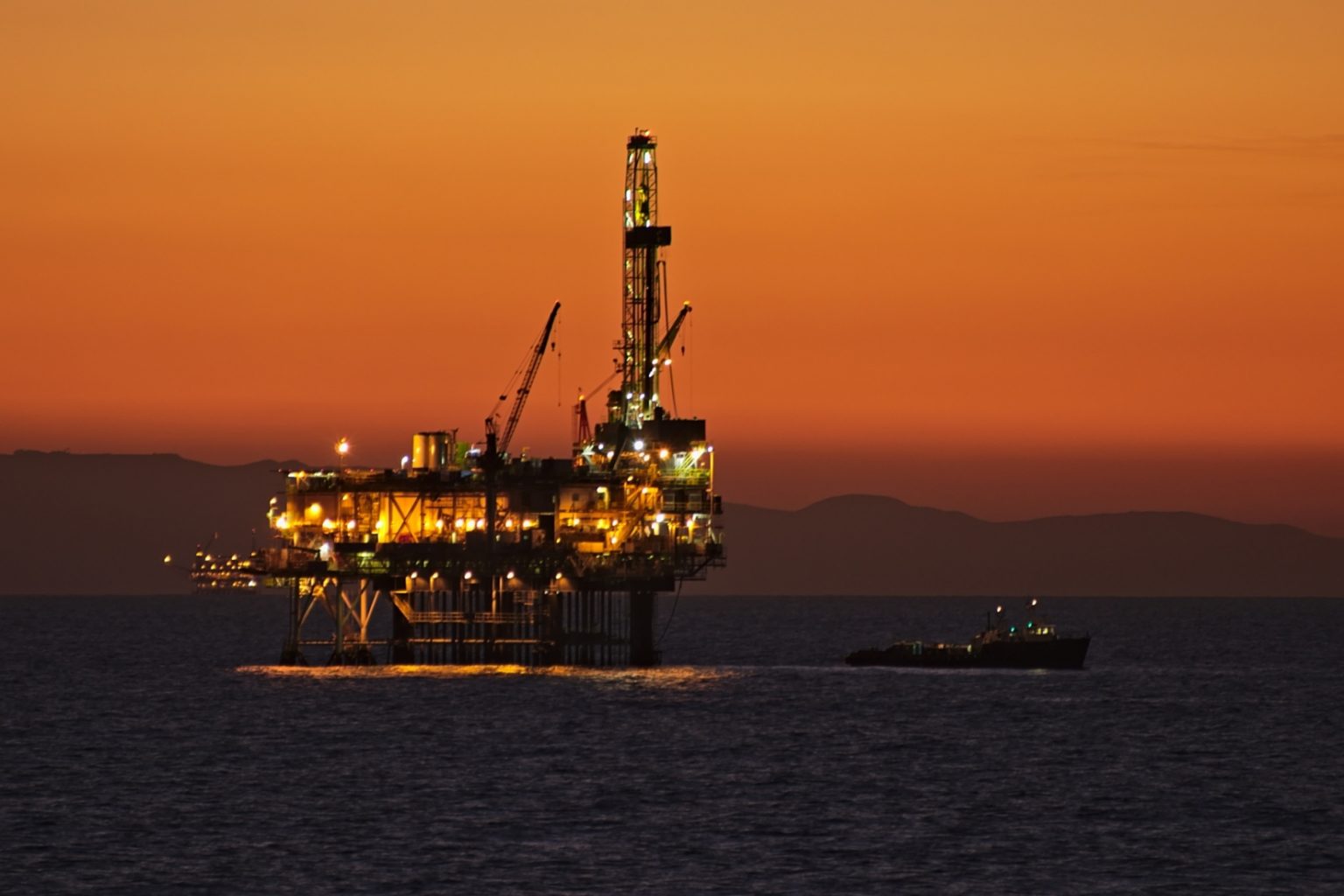The U.S. federal government will stop approving offshore oil fracking operations off California’s coast while it studies how damaging the practice is to the health of wildlife and the environment.
In separate deals with Santa Barbara, CA-based Environmental Defense Center (EDC) and Tucson, Arizona-based Center for Biological Diversity, the U.S. Department of the Interior agreed to assess the risks posed by well-stimulation techniques such as fracking and acidization when used on oil platforms off California’s coast.
Documents obtained by EDC following a 2013 Freedom of Information Act request revealed that the controversial well stimulation techniques were used on offshore platforms, while federal regulators had no idea where or how frequently the practices were employed.
EDC filed a lawsuit challenging 53 permits authorizing offshore well stimulation at six offshore platforms, two off Ventura County, California and the other four off Santa Barbara County.
Three of the platforms at issue — Harmony, Heritage and Hondo — are owned and operated by ExxonMobil. Oil from those platforms feeds into Plains All American Pipeline 901, which ruptured last May near Refugio State Beach, spilling 105,000 gallons of oil.
A settlement reached with the EDC requires two agencies within the Interior Dept., the Bureau of Safety and Environmental Enforcement (BSEE) and the Bureau of Ocean Energy Management (BOEM), to perform an environmental assessment in compliance with the National Environmental Policy Act to analyze the potential environmental impacts of fracking and acid well stimulation.
According to the EDC, this is the first time any government agency has been required to evaluate the risks these well-stimulation practices pose to water and air quality as well as many endangered species like blue, fin and humpback whales and the southern sea otter.
“These practices are currently being conducted under decades old plans with out-of-date or nonexistent environmental analysis,” Brian Segee, senior attorney at EDC, said in a statement, “and this settlement will finally force the federal government to consider their impacts in detail with a transparent process open to public review and input.”
Per the settlement, the federal government will not be allowed to issue new permits for fracking from platforms off California’s coast until the environmental review is complete.
The Center for Biological Diversity (CDB), which reached a separate agreement with the Interior Dept., said that at least 200 wells in state and federal waters off Long Beach, Seal Beach, Huntington Beach and the Santa Barbara Channel have used fracking.
The group charged in a lawsuit that the Interior Dept. was “rubber stamping” approval of fracking off California’s coast without engaging the public or analyzing fracking’s threats to ocean ecosystems, coastal communities and marine life.
“Offshore fracking is a dirty and dangerous practice that has absolutely no place in our ocean,” Kristen Monsell, a CBD attorney, said in a statement. “The federal government certainly has no right to give the oil industry free rein to frack offshore at will.”
CBD has documented several serious impacts of offshore fracking near Santa Barbara and Los Angeles, including air pollution, increased earthquake risk and the discharge of toxic chemicals.
Oil platforms off California’s coast are allowed to dump nine billion gallons of wastewater into the Pacific Ocean every year — including fracking chemicals that are acutely toxic to mammals. A 2014 report by CBD scientists found that 10 fracking chemicals routinely used in offshore operations can kill or severely harm a broad variety of marine species, including sea otters and fish.
Both settlement agreements must be submitted to and approved by a federal judge for final approval. The government agencies will have until May 28, 2016 to complete their environmental review of well stimulation from offshore oil platforms.
“Every offshore frack puts coastal communities and marine wildlife at risk from dangerous chemicals or another devastating oil spill,” Monsell said. “Once federal officials take a hard look at the dangers, they’ll have to conclude that offshore fracking is far too big of a gamble with our oceans’ life-support systems. They’ll have to stop authorizing it for good.”
Image Credit: cclark395 / Flickr.com
Subscribe to our newsletter
Stay up to date with DeSmog news and alerts







